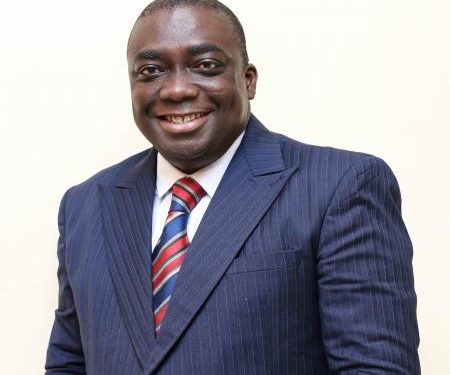The Director-General of the Institute for Educational Planning and Administration (IEPA) of the University of Cape Coast (UCC) Dr. Michael Boakye-Yiadom has called on university authorities to integrate co-curricular activities into the academic curriculum to well equip students for the corporate world.
He notes that the corporate world is challenging and that the world have high expectations of University graduates hence it is critical that lecturers and stakeholders of Universities impart practical knowledge into students to support them.
Speaking at a five-day webinar workshop organized by the Association of African Universities (AAU) on university leadership and management development, Dr. Boakye Yiadom urged school authorities to encourage the active engagement between lecturers and students to help them in their period of growth.
Read also: NDC MPs’ motion for probe into election violence ‘hypocritical’ – Kyei-Mensah-Bonsu
“As soon as a student enrolls in an institution of higher education, the expectations are that some growth must happen but I do not see why our students cannot work in the libraries 10 hours a week so they gain some employable skills while in school. And these are things we do not teach in the classroom and these soft skills are developed through Co-Curricular activities. And there are lots of practitioners we can partner with and bring them to the classroom to support us and it is our responsibility to support them and help them to grow and develop because if we do not ,they will graduate and become problems for us”, he said.
Dr. Boakye Yiadom added that “education should help students or individuals to gain mastery over the environment and control over self, so we need a balance .It is a balance that must be created by 21st century University leadership and they do it through policy ,practices ,intervention and they have systems, offices and professionals trained in these areas to support the students .We must treat the co-curricular activities as part of the curriculum with objectives ,learning outcomes so that we can assess them and use this assessment as part of our regular end of year or end of semester evaluation because life of our students go beyond the classroom experience “.
He further advised that students are mentored and empowered to take up leadership roles as a way of preparing them for greater heights.
“We must create that platform for relationships and that is why we have academic advisors and counsellors in your class room space, be a friend to your students, know them, when they are not in their normal disposition, you should be able to identify .You cannot do any of the innovative approaches if you do not believe in empowering your students, get them to work on projects and take some community initiatives. Let’s change our curriculum, so let us plan mentorship programmes where it is formalized by individual members and you can use peers mentors, you can use your postgraduate students to mentor undergraduate students and if we plan, collaborate and do it well, you can have your own undergraduate students mentoring those in the senior high schools and we will end up having national mentorship programmes in all our educational systems”, he indicated.
The webinar series which was on the theme: Leading and Managing a 21st Century University combined presentations and insights from renowned speakers and stakeholders from African Universities to give an enlightenment in leadership in governance and management of a modern University amidst crisis.
SOURCE: GLORIA AMPOMAH OPPONG/ATLFMNEWS

























